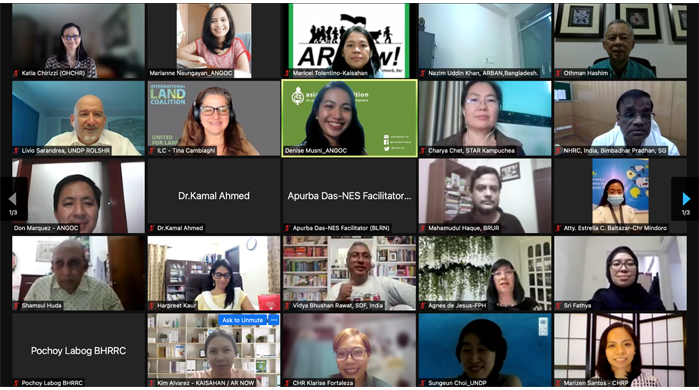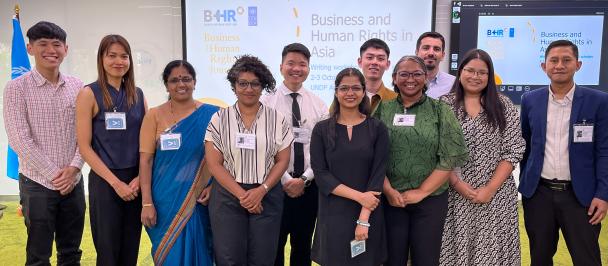Land is the basis of many people’s livelihoods, and violations of land rights can have consequences for generations. But despite their importance, land issues have not gained prominence in discussions and action around business and human rights (BHR). At the same time, there appears to be a disconnect between the community organizations and activists working on land rights, and those working on BHR.
To promote exchange on the topic, UNDP’s Business and Human Rights in Asia project (B+HR Asia) co-organised a virtual Regional Workshop on Mainstreaming Land Rights in the UN Guiding Principles on Business and Human Rights (UNGPs) in Asia on 3-4 August. The event was led by the Asian NGO Coalition of Agrarian Reform and Rural Development (ANGOC) and built upon a previous joint workshop held in 2018.
During the opening session, Professor Surya Deva, Chairperson of the UN Working Group on Business and Human Rights, highlighted the correlation between land rights, human rights, and the Sustainable Development Goals.
“Because of these connections, businesses that are acquiring land or entering into long-term leases with farmers to grow certain crops, must conduct meaningful human rights due diligence before starting any particular project. To make it meaningful, they would have to consider Free Prior and Informed Consent, underlining the word ‘consent’,” he said.
National human rights commissions (NHRCs) of Bangladesh, India, and Nepal, the Indonesian Ministry of Law and Human Rights, and the Indian Institute of Corporate Affairs shared their experiences, including opportunities and challenges to integrating land rights issues in the UN Guiding Principles on Business and Human Rights (UNGPs), and provided their reflections on the way forward. During breakout groups, participants explored building blocks and priority actions to promote the integration of land rights in BHR activities and identified key actors to engage.
Following the workshop, the Bangladesh NHRC formed a special group – including two civil society organizations present at the workshop – to identify issues relating to indigenous and minority land rights and develop a roadmap to address these concerns. This will benefit ongoing work on BHR in the country and support the development of the National Action Plan on Business and Human Rights.
During the workshop, participants also learned country-specific issues and linkages between land and BHR, including case studies of landgrabs in six countries in Asia. ANGOC presented the preliminary findings of a report on instituting national action plans for protecting land rights and provided a set of recommendations aligned with the three pillars of the UNGPs. The report was developed with the support of a grant from the UNDP B+HR Asia project.
More than 150 participants from diverse backgrounds including governments, national human rights institutions, policy institutions, civil society networks, academia, businesses, and international organisations based in Asia. Other organizers included the Asia Working Group on Land Rights as Human Rights (WG LRHR); Asian NGO Coalition for Agrarian Reform and Rural Development (ANGOC); Commission on Human Rights of the Philippines (CHRP); International Land Coalition (ILC); Land Watch Asia (LWA); United Nations Development Programme Business and Human Rights in Asia (B+HR Asia); Office of the United Nations High Commissioner for Human Rights (UN OHCHR) in Southeast Asia; and Southeast Asia National Human Rights Institution Forum (SEANF).
For more information, read the workshop summary on ANGOC’s blog here.

 Locations
Locations


